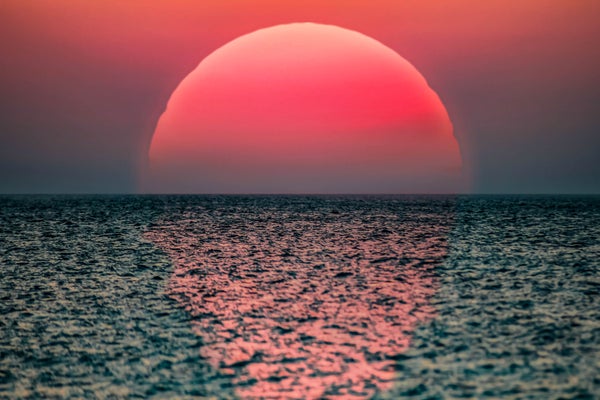This article was published in Scientific American’s former blog network and reflects the views of the author, not necessarily those of Scientific American
Mother Nature has its nuanced way of educating us. Following a century of scientific and technological advances that triggered unprecedented economic growth, our civilization perceived its superiority over nature as undisputed.
Like corrections to irrationally exuberant stock markets, however, COVID-19 is a correction to human hubris. Nature is teaching all humans, rich and poor, to be humble. Although we thought we can manipulate nature at our will, here comes a primitive coronavirus with negligible information content relative to our brain, threatening to kill us and wreck our economy, causing as much damage from the side effects triggered by our societal reaction to it as from its direct medical impact.
Personally, I practiced social distancing long before it became trendy. In my mind, it was evident before the appearance of COVID-19 that we are fundamentally “monads” as envisioned by the philosopher Gottfried Leibniz, despite illusive notions of empowerment that stem from groupthink. Social distancing benefits free thinking. Isaac Newton did his best scientific work while staying home with his parents at Woolsthorpe during the Great Plague of London in 1665–66, when Cambridge University closed down. Over a year of independent work, he developed calculus, optics and realized the nature of gravity.
On supporting science journalism
If you're enjoying this article, consider supporting our award-winning journalism by subscribing. By purchasing a subscription you are helping to ensure the future of impactful stories about the discoveries and ideas shaping our world today.
But there is another lesson to be learned. A few years earlier, Newton wrote a document that, among other things, listed the sins he’d committed “Before Whitsunday 1662.” Number 13 on the list: “Threatening my father and mother Smith to burne them and the house over them.”
As a student of history, I am doing my best to be nice to my daughters during the COVID-19 lockdown.
Beyond existential lessons, however, COVID-19 has sparked international scientific collaborations demonstrating that science has no borders when it comes to promoting a better common future for our civilization. Just as the novel coronavirus can infect everyone, a successful vaccine can benefit everyone. Scientific triumphs are for all of us to share. Science is not a zero-sum, but rather an infinite-sum, game. Here’s hoping that in the wake of COVID-19, international scientific collaborations will lead to more goodwill among nations and better political collaboration across the globe in our future.
The most fundamental lesson is simple. We must treasure all the good that nature gives us rather than take it for granted, because it can easily disappear. Over the next century, trillions of dollars could be lost not just from pandemics like COVID-19 but also from major solar flares or asteroid impacts. We’d better prepare protections for those before they hit us.
On longer timescales, even bigger catastrophes might occur, such as explosions of nearby stars or a brightening of the sun that will boil off our oceans less than a billion years from now.
As I told students over Zoom in my freshman seminar at Harvard last week, life as we know it is merely an afterthought in the global scheme of the cosmos. The universe started off consisting mainly of hydrogen and helium. Heavy elements like carbon and oxygen, which enable the chemistry of life, are the “ashes” from nuclear burning in the hot cores of stars. Our transient existence has lasted for less than 10 one-billionths of cosmic history so far on a tiny rock we call Earth, surrounded by a vast lifeless space. We should be thankful for the fortuitous circumstances that allow us to exist, because they will surely go away one day, with or without COVID-19.
Read more about the coronavirus outbreak from Scientific American here, and read coverage from our international network of magazines here.
